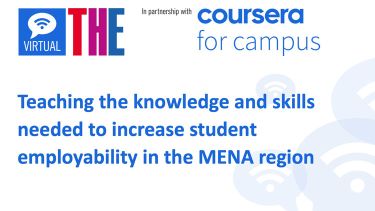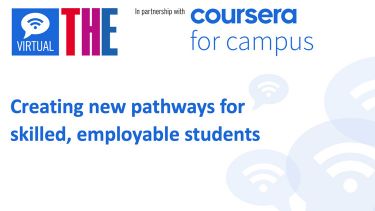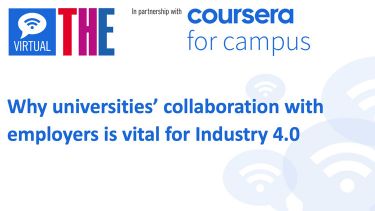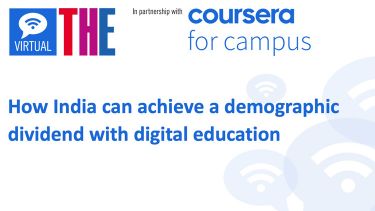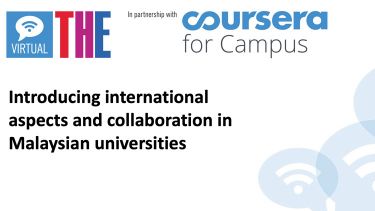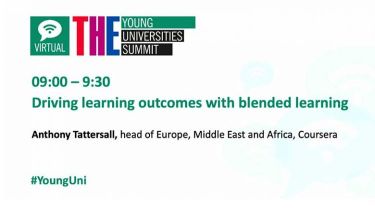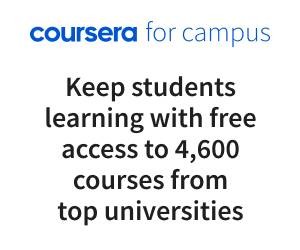The ambitious goals of Saudi Arabia’s Vision 2030 are paving the way for universities to become more adaptable, agile and sustainable
One of the goals of Saudi Arabia’s Vision 2030 programme is enhancing the sustainability of education through the development of a comprehensive framework for flexible learning. With the higher education sector experiencing rapid transformation, universities need to adapt to the changing needs of students, industry and the government.
The challenges of aligning with Vision 2030 were discussed by a panel of experts taking part in a round table discussion held by Times Higher Education in partnership with Coursera for Campus.
The panellists suggested that the changing labour market, both in Saudi Arabia and internationally, is pushing universities to adapt to new realities. “It is not about one specific set of skills, but about the current needs and trends in the job market,” said Connie Mitchell, vice-dean of Prince Sultan University (PSU) in Riyadh. “We have to think five, 10, 15 years from now when developing the curricula to be able to address these issues as we move forward.”
Pedro Moura, director of partnerships at Coursera, agreed with Mitchell, pointing to the difficulties in aligning with employers’ expectations in today’s competitive environment. “Today, the average life of a skill is probably five years or less, and things are changing really fast,” Moura said.
Tahira Hoke, aide to PSU’s president and director of evaluation and academic accreditation, added that the Vision 2030 programme had highlighted the need for universities to think more sustainably. “We try to align with the sustainable development goals at the university. It is important for us to go virtual as much as possible,” Hoke said.
Hoke also noted that the emphasis on lifelong learning for students at PSU aimed to reduce unemployment in the country, in line with sustainability goals. Mitchell also spoke of PSU’s efforts in “greening” the curricula across all disciplines.
According to Moura, online learning provided universities with new opportunities to improve education practices and ensure the sustainability of education. He pointed out that, “today, with so many opportunities for the faculty to create their own virtual labs and courses, the faculty is looking at online resources as a way to improve the process of teaching”.
Heba Al Khoshaim, vice-president of the women’s campus at PSU, agreed that these new trends were reflected in both teachers’ and students’ growing enthusiasm for learning about technology.
Panellists discussed the importance taking an international approach to learning – consistent with the Vision 2030 goals. “Employment is no longer about what is right here. It is about what is across the country, across the region, across the globe,” Mitchell said. She added that PSU made efforts to educate students about global concerns through programmes such as the Model United Nations.
Al Khoshaim added that PSU provides students with opportunities to study abroad. “We support students in being exposed to the new environments around the world, experiencing other universities internationally,” she concluded.
The panel:
- Tahira Hoke, aide to president and director of evaluation and academic accreditation, Prince Sultan University
- Heba Al Khoshaim, vice-president of the women’s campus, Prince Sultan University
- Connie Mitchell, vice-dean, Prince Sultan University
- Pedro Moura, director of partnerships, Coursera
- Iyad Wakkaa, ITC Staff, Prince Sultan University
- Ashton Wenborn, special projects deputy editor, Times Higher Education (chair)
Watch the round table on demand above or on the THE Connect YouTube channel.
Find out more about Coursera for Campus.















